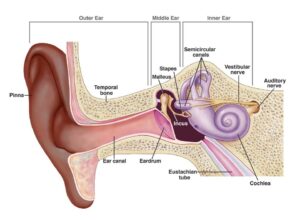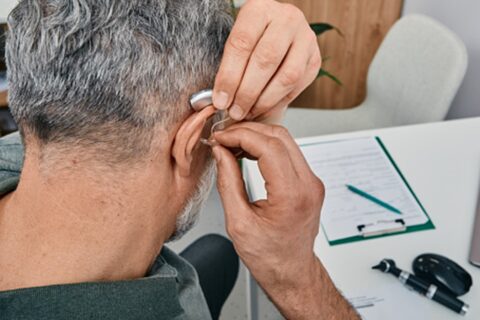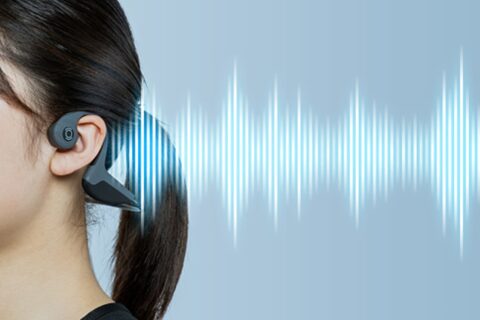How Hearing Works

How Does Hearing Work?
The ability to hear is a wonderful sense. From our favorite sounds like beautiful music and a baby’s laugh to chirping birds in the springtime and soft rain, our hearing brings us joy. But have you ever really thought about how it all happens — how do we hear?
How Hearing Works
There are three parts to the ear: the outer ear, middle ear, and inner ear. They, and many small parts within each, all work together to allow us to hear.
First, sound waves enter the outer ear and travel through the ear canal to the eardrum, a paper-thin membrane. The sound waves cause the eardrum to vibrate, and the vibrations travel to the three tiny bones in the middle ear: the malleus (also known as the hammer), incus (also known as the anvil), and stapes (also known as the stirrup). These are tiny bones; in fact, the stapes is the smallest bones in the body – smaller than a pea.
From here, the vibrations pass through fluid in the inner ear (cochlea). In the snail-shaped cochlea, approximately 16,000 hair cells transform the vibrations into electrical signals, These Hair cells are extremely fragile. Loud sounds can damage or even destroy them, and once they’re destroyed, they can’t be repaired.
Once the vibrations are converted to electrical signals, they travel along a complex pathway of nerve fibers to auditory pathways in the brain. Your brain turns these signals into a sound that we recognize and understand.
Hearing Loss Statistics
Hearing loss is a relatively common condition, especially as we age. Consider these statistics from the National Institute on Deafness and Other Communication Disorders (NIDCD), part of the National Institutes of Health:
- Approximately 15% of American adults (37.5 million) aged 18 and over report some trouble hearing
- Hearing loss affects 1 out of every 3 people over the age of 65
- Age is the strongest predictor of hearing loss among adults aged 20-69, with the greatest amount of hearing loss in the 60 to 69 age group
- Men are almost twice as likely as women to have hearing loss among adults aged 20-69
How to Protect Your Hearing
Age and exposure to very loud noises are two major contributors to hearing loss. While we can’t control the natural aging process, we can control our exposure to noise. Noise is measured in decibels (dB). Long or repeated exposure to sounds at or above 85 dB can cause hearing loss by damaging the nerve cells that translate sound waves into sound.
Tips for protecting your hearing include:
- Know which noises are at or above 85 dBA and limit your exposure to them
- Wear earplugs or other protective devices when exposed to loud noise
- If you can’t reduce the noise or protect yourself from it, move away from it
- Have your hearing tested on a regular basis if you are frequently exposed to loud noise
- Get treatment for ear infections, which can cause permanent damage to the ear if they’re left untreated.
Florida Gulf Coast Hearing Center offers customized hearing protection such as in-ear monitors and custom in-ear headphones for musicians, electronic noise-damping systems for shooting, swim ear plugs and waterproof headbands, and custom-molded all-purpose plugs.
Hearing Doctors in Southwest Florida
The experienced and skilled audiology team at the Florida Gulf Coast Hearing Center conducts highly specialized hearing testing and offers cutting-edge treatments for all forms of hearing loss and hearing disorders. Working together, our team of physicians and audiologists will perform a thorough exam and testing to determine your specific diagnosis and treatment options. Our unique combination of ear, nose, and throat physicians and highly trained hearing specialists make our practice the optimal care provider for your hearing health.


